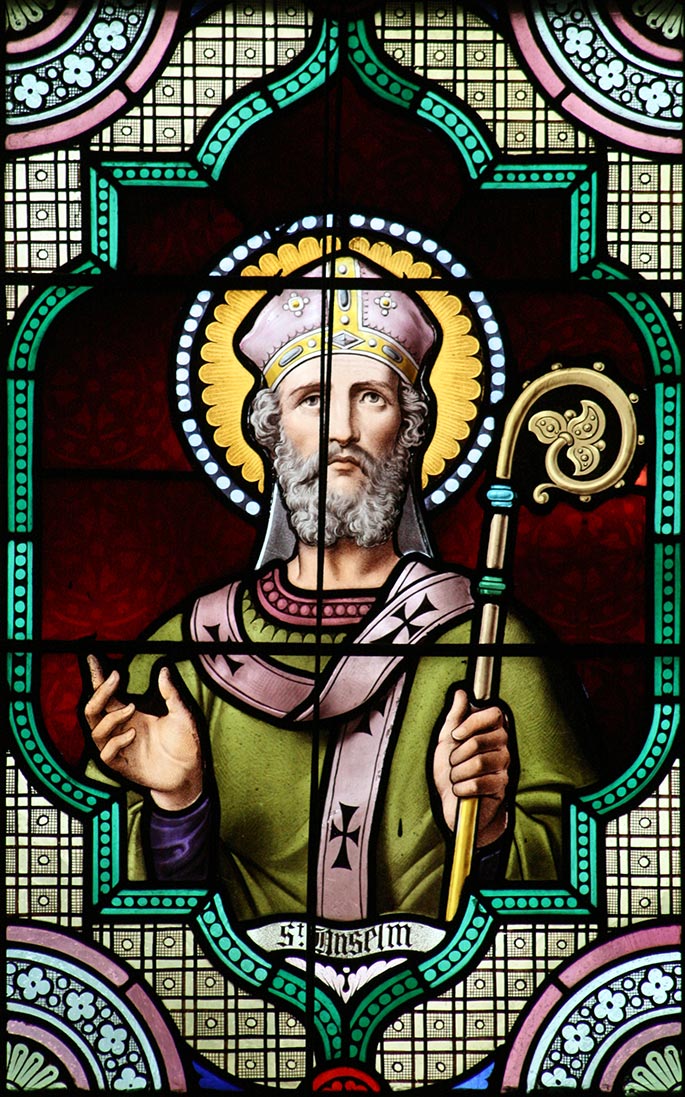|
Norman Malcolm
Norman Malcolm (; 11 June 1911 – 4 August 1990) was an American philosopher. Biography Malcolm was born in Selden, Kansas. He studied philosophy with O. K. Bouwsma at the University of Nebraska, then enrolled as a graduate student at Harvard University in 1933. At Cambridge University in 1938–9, he met G. E. Moore and Ludwig Wittgenstein. Malcolm attended Wittgenstein's lectures on the philosophical foundations of mathematics throughout 1939 and remained one of Wittgenstein's closest friends. Malcolm's memoir of his time with Wittgenstein, published in 1958, is widely acclaimed as one of the most captivating and most accurate portraits of Wittgenstein's remarkable personality. After serving in the United States Navy from 1942 to 1945, Malcolm, with his wife, Leonida, and their son, Raymond Charles Malcolm, resided in Cambridge again in 1946–47. He saw a good deal of Wittgenstein during that time, and they continued to correspond frequently thereafter. In 1947, Ma ... [...More Info...] [...Related Items...] OR: [Wikipedia] [Google] [Baidu] |
Western Philosophy
Western philosophy encompasses the philosophy, philosophical thought and work of the Western world. Historically, the term refers to the philosophical thinking of Western culture, beginning with the ancient Greek philosophy of the Pre-Socratic philosophy, pre-Socratics. The word ''philosophy'' itself originated from the Ancient Greek (φιλοσοφία), literally, "the love of wisdom" grc, φιλεῖν , "to love" and σοφία ''Sophia (wisdom), sophía'', "wisdom"). History Ancient The scope of ancient Western philosophy included the problems of philosophy as they are understood today; but it also included many other disciplines, such as pure mathematics and natural sciences such as physics, astronomy, and biology (Aristotle, for example, wrote on all of these topics). Pre-Socratics The pre-Socratic philosophers were interested in cosmology; the nature and origin of the universe, while rejecting Greek mythology, mythical answers to such questions. They were spe ... [...More Info...] [...Related Items...] OR: [Wikipedia] [Google] [Baidu] |
Ontological Argument
An ontological argument is a philosophical argument, made from an ontological basis, that is advanced in support of the existence of God. Such arguments tend to refer to the state of being or existing. More specifically, ontological arguments are commonly conceived ''a priori'' in regard to the organization of the universe, whereby, if such organizational structure is true, God must exist. The first ontological argument in Western Christian traditionSzatkowski, Miroslaw, ed. 2012. ''Ontological Proofs Today''. Ontos Verlag. "There are three main periods in the history of ontological arguments. The first was in 11th century, when St. Anselm of Canterbury came up with the first ontological argument" (p. 22). was proposed by Saint Anselm of Canterbury in his 1078 work, '' Proslogion'' (), in which he defines God as "a being than which no greater can be conceived," and argues that such being must exist in the mind, even in that of the person who denies the existence of God. O ... [...More Info...] [...Related Items...] OR: [Wikipedia] [Google] [Baidu] |
Ontological Argument
An ontological argument is a philosophical argument, made from an ontological basis, that is advanced in support of the existence of God. Such arguments tend to refer to the state of being or existing. More specifically, ontological arguments are commonly conceived ''a priori'' in regard to the organization of the universe, whereby, if such organizational structure is true, God must exist. The first ontological argument in Western Christian traditionSzatkowski, Miroslaw, ed. 2012. ''Ontological Proofs Today''. Ontos Verlag. "There are three main periods in the history of ontological arguments. The first was in 11th century, when St. Anselm of Canterbury came up with the first ontological argument" (p. 22). was proposed by Saint Anselm of Canterbury in his 1078 work, '' Proslogion'' (), in which he defines God as "a being than which no greater can be conceived," and argues that such being must exist in the mind, even in that of the person who denies the existence of God. O ... [...More Info...] [...Related Items...] OR: [Wikipedia] [Google] [Baidu] |
Modal Logic
Modal logic is a collection of formal systems developed to represent statements about necessity and possibility. It plays a major role in philosophy of language, epistemology, metaphysics, and natural language semantics. Modal logics extend other systems by adding unary operators \Diamond and \Box, representing possibility and necessity respectively. For instance the modal formula \Diamond P can be read as "possibly P" while \Box P can be read as "necessarily P". Modal logics can be used to represent different phenomena depending on what kind of necessity and possibility is under consideration. When \Box is used to represent epistemic necessity, \Box P states that P is epistemically necessary, or in other words that it is known. When \Box is used to represent deontic necessity, \Box P states that P is a moral or legal obligation. In the standard relational semantics for modal logic, formulas are assigned truth values relative to a '' possible world''. A formula's truth value ... [...More Info...] [...Related Items...] OR: [Wikipedia] [Google] [Baidu] |
Ordinary Language Philosophy
Ordinary language philosophy (OLP) is a philosophical methodology that sees traditional philosophical problems as rooted in misunderstandings philosophers develop by distorting or forgetting how words are ordinarily used to convey meaning in non-philosophical contexts. "Such 'philosophical' uses of language, on this view, create the very philosophical problems they are employed to solve." This approach typically involves eschewing philosophical "theories" in favor of close attention to the details of the use of everyday "ordinary" language. Its earliest forms are associated with the later work of Ludwig Wittgenstein and a number of mid-20th century philosophers who can be split into two main groups, neither of which could be described as an organized "school". In its earlier stages, contemporaries of Wittgenstein at Cambridge University such as Norman Malcolm, Alice Ambrose, Friedrich Waismann, Oets Kolk Bouwsma and Morris Lazerowitz started to develop ideas recognisable a ... [...More Info...] [...Related Items...] OR: [Wikipedia] [Google] [Baidu] |
Here Is A Hand
Here is one hand is an epistemological argument created by G. E. Moore in reaction against philosophical skepticism and in support of common sense. The argument takes the following form: * Here is one hand, * And here is another. * There are at least two external objects in the world. * Therefore, an external world exists. Introduction G. E. Moore wrote " A Defence of Common Sense" and ''Proof of an External World''. For the purposes of these essays, he posed skeptical hypotheses, such as " you may be dreaming" or " the world is 5 minutes old", and then provided his own response to them. Such hypotheses ostensibly create a situation where it is not possible to know that anything in the world exists. These hypotheses take the following form: The skeptical argument Where ''S'' is a subject, ''sp'' is a skeptical possibility, such as the brain in a vat hypothesis, and ''q'' is a knowledge claim about the world: :* If ''S'' doesn't know that not-''sp'', then ''S'' doesn't know th ... [...More Info...] [...Related Items...] OR: [Wikipedia] [Google] [Baidu] |
Ordinary Language
Ordinary language philosophy (OLP) is a philosophical methodology that sees traditional philosophical problems as rooted in misunderstandings philosophers develop by distorting or forgetting how words are ordinarily used to convey meaning in non-philosophical contexts. "Such 'philosophical' uses of language, on this view, create the very philosophical problems they are employed to solve." This approach typically involves eschewing philosophical "theories" in favor of close attention to the details of the use of everyday "ordinary" language. Its earliest forms are associated with the later work of Ludwig Wittgenstein and a number of mid-20th century philosophers who can be split into two main groups, neither of which could be described as an organized "school". In its earlier stages, contemporaries of Wittgenstein at Cambridge University such as Norman Malcolm, Alice Ambrose, Friedrich Waismann, Oets Kolk Bouwsma and Morris Lazerowitz started to develop ideas recognisable a ... [...More Info...] [...Related Items...] OR: [Wikipedia] [Google] [Baidu] |
Ithaca, New York
Ithaca is a city in the Finger Lakes region of New York, United States. Situated on the southern shore of Cayuga Lake, Ithaca is the seat of Tompkins County and the largest community in the Ithaca metropolitan statistical area. It is named after the Greek island of Ithaca. A college town, Ithaca is home to Cornell University and Ithaca College. Nearby is Tompkins Cortland Community College (TC3). These three colleges bring thousands of students to the area, who increase Ithaca's seasonal population during the school year. As of 2020, the city's population was 32,108. History Early history Native Americans lived in this area for thousands of years. When reached by Europeans, this area was controlled by the Cayuga tribe of Indians, one of the Five Nations of the ''Haudenosaunee'' or Iroquois League. Jesuit missionaries from New France (Quebec) are said to have had a mission to convert the Cayuga as early as 1657. Saponi and Tutelo peoples, Siouan-speaking tribe ... [...More Info...] [...Related Items...] OR: [Wikipedia] [Google] [Baidu] |
United States Navy
The United States Navy (USN) is the maritime service branch of the United States Armed Forces and one of the eight uniformed services of the United States. It is the largest and most powerful navy in the world, with the estimated tonnage of its active battle fleet alone exceeding the next 13 navies combined, including 11 allies or partner nations of the United States as of 2015. It has the highest combined battle fleet tonnage (4,635,628 tonnes as of 2019) and the world's largest aircraft carrier fleet, with eleven in service, two new carriers under construction, and five other carriers planned. With 336,978 personnel on active duty and 101,583 in the Ready Reserve, the United States Navy is the third largest of the United States military service branches in terms of personnel. It has 290 deployable combat vessels and more than 2,623 operational aircraft . The United States Navy traces its origins to the Continental Navy, which was established during the American R ... [...More Info...] [...Related Items...] OR: [Wikipedia] [Google] [Baidu] |
Mathematics
Mathematics is an area of knowledge that includes the topics of numbers, formulas and related structures, shapes and the spaces in which they are contained, and quantities and their changes. These topics are represented in modern mathematics with the major subdisciplines of number theory, algebra, geometry, and mathematical analysis, analysis, respectively. There is no general consensus among mathematicians about a common definition for their academic discipline. Most mathematical activity involves the discovery of properties of mathematical object, abstract objects and the use of pure reason to proof (mathematics), prove them. These objects consist of either abstraction (mathematics), abstractions from nature orin modern mathematicsentities that are stipulated to have certain properties, called axioms. A ''proof'' consists of a succession of applications of inference rule, deductive rules to already established results. These results include previously proved theorems, axioms ... [...More Info...] [...Related Items...] OR: [Wikipedia] [Google] [Baidu] |
George Edward Moore
George Edward Moore (4 November 1873 – 24 October 1958) was an English philosopher, who with Bertrand Russell, Ludwig Wittgenstein and earlier Gottlob Frege was among the founders of analytic philosophy. He and Russell led the turn from idealism in British philosophy and became known for advocating common-sense concepts and contributing to ethics, epistemology and metaphysics. He was said to have an "exceptional personality and moral character". Ray Monk later dubbed him "the most revered philosopher of his era". As Professor of Philosophy at the University of Cambridge, he influenced but abstained from the Bloomsbury Group. He edited the journal ''Mind''. He was a member of the Cambridge Apostles from 1894 to 1901, a fellow of the British Academy from 1918, and chaired the Cambridge University Moral Sciences Club in 1912–1944. As a humanist, he presided over the British Ethical Union (now Humanists UK) in 1935–1936. Life George Edward Moore was born in Upper Norwood, in ... [...More Info...] [...Related Items...] OR: [Wikipedia] [Google] [Baidu] |





